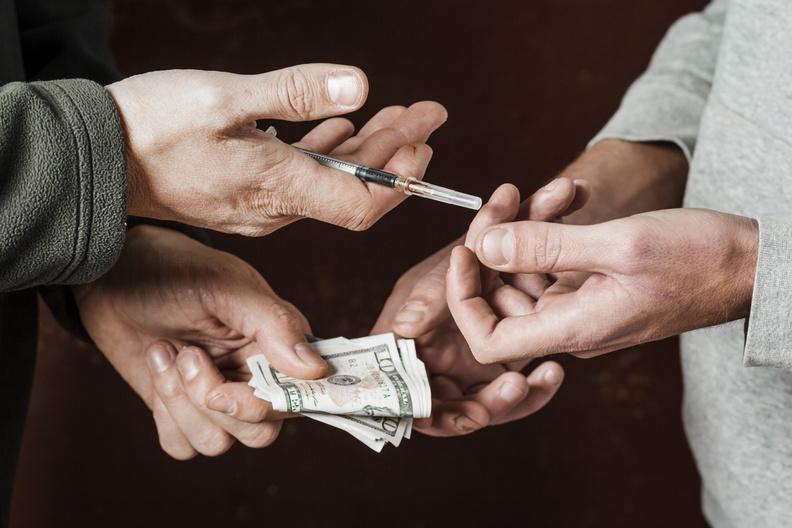Prescription Drug Charges: What You Need to Know About Legal Consequences a

Prescription drugs play a critical role in modern healthcare, offering relief and treatment for a variety of medical conditions. However, the misuse of these medications has led to a significant legal and societal challenge. Prescription drug charges have become a focal point in the legal system, with various offenses carrying severe penalties.
Types of Prescription Drugs
Prescription drugs encompass a wide range of medications, each serving different medical purposes. These drugs are typically classified into several categories:
Opioids: Commonly prescribed for pain relief, opioids like oxycodone, hydrocodone, and fentanyl are among the most misused prescription drugs. Their high potential for addiction has made them central to the opioid crisis.
Benzodiazepines: Medications like Xanax, Valium, and Ativan are prescribed for anxiety, insomnia, and other conditions. They have a calming effect but can lead to dependence and abuse.
Stimulants: Drugs such as Adderall and Ritalin are often prescribed for attention deficit hyperactivity disorder (ADHD). While effective for treating this condition, they are also misused for their stimulating effects.
Antidepressants: Medications like Zoloft, Prozac, and Lexapro are prescribed for depression and anxiety. Although less commonly abused, they can still be misused, leading to potential legal issues.
Antipsychotics: Drugs like Seroquel and Risperdal are used to treat severe psychiatric conditions. Misuse of these drugs is less common but still possible, particularly when used without a prescription.
Charges for Prescription Drug Offenses
Prescription drug charges can arise in various contexts, each involving different legal considerations and potential penalties. Here’s an overview of the most common charges:
Possession Without a Prescription: One of the most straightforward charges is that possession of a prescription drug without a valid prescription is illegal. This charge applies to individuals found with prescription medications that are not prescribed to them, regardless of the intent to use or distribute.
Illegal Distribution: The sale or distribution of prescription drugs without proper authorization constitutes illegal distribution. This charge is often associated with individuals who sell or give away their prescribed medications, as well as those involved in larger-scale operations.
Prescription Fraud: This charge involves obtaining prescription drugs through deceit or misrepresentation. Common forms of prescription fraud include forging prescriptions, doctor shopping (visiting multiple doctors to obtain prescriptions), and using stolen prescription pads.
Trafficking of Prescription Drugs: Trafficking refers to the illegal trade of prescription drugs, typically involving large quantities. This charge is often applied to those involved in the organized distribution of prescription medications, and it carries severe penalties due to the scale of the operation.
Penalties for Prescription Drug Charges
The penalties for prescription drug charges vary widely depending on the nature of the offense, the type of drug involved, and the jurisdiction. However, these penalties generally fall into a few categories:
Fines: Most prescription drug charges carry fines, which can range from hundreds to thousands of dollars, depending on the severity of the offense.
Imprisonment: Jail or prison time is a common penalty, particularly for more serious charges like trafficking or illegal distribution. Sentences can range from months to years, with harsher penalties for repeat offenders or those involved in large-scale operations.
Probation: In some cases, individuals may be sentenced to probation instead of, or in addition to, imprisonment. Probation typically involves regular check-ins with a probation officer, drug testing, and other conditions aimed at preventing further offenses.
Loss of Professional Licenses: Healthcare professionals convicted of prescription drug charges may lose their medical or pharmaceutical licenses, effectively ending their careers in the field.
Criminal Record: A conviction for prescription drug charges will result in a criminal record, which can have long-term consequences for employment, housing, and other aspects of life.
Defenses Against Prescription Drug Charges
Facing prescription drug charges can be daunting, but several legal defenses may be employed to contest these charges. Some common defenses include:
Lack of Intent: Many prescription drug charges require proof of intent. If an individual can demonstrate that they did not intend to possess or distribute the drug illegally, they may have a viable defense. For example, someone may have unknowingly possessed a prescription drug that belonged to someone else.
Valid Prescription: A valid prescription is a strong defense against possession charges. If an individual can provide evidence that they were prescribed the drug by a licensed medical professional, the charges may be dismissed.
Mistaken Identity: In some cases, individuals may be wrongfully accused of prescription drug offenses due to mistaken identity. This defense involves proving that the accused was not the person involved in the illegal activity.
Entrapment: Entrapment occurs when law enforcement officers induce someone to commit a crime they would not have otherwise committed. If it can be shown that the accused was coerced into the illegal activity, this defense may be successful.
Improper Search and Seizure: If law enforcement conducted an illegal search and seizure, any evidence obtained may be inadmissible in court. This defense can lead to the dismissal of charges if it is proven that the individual's rights were violated during the investigation.
Prescription drug charges are a serious legal matter with significant consequences. Understanding the types of prescription drugs, the various charges associated with their misuse, the penalties that may be imposed, and the defenses available can help individuals navigate these complex legal challenges. As the misuse of prescription drugs continues to be a pressing issue, staying informed and seeking legal counsel when necessary is crucial for anyone facing such charges.



Comments